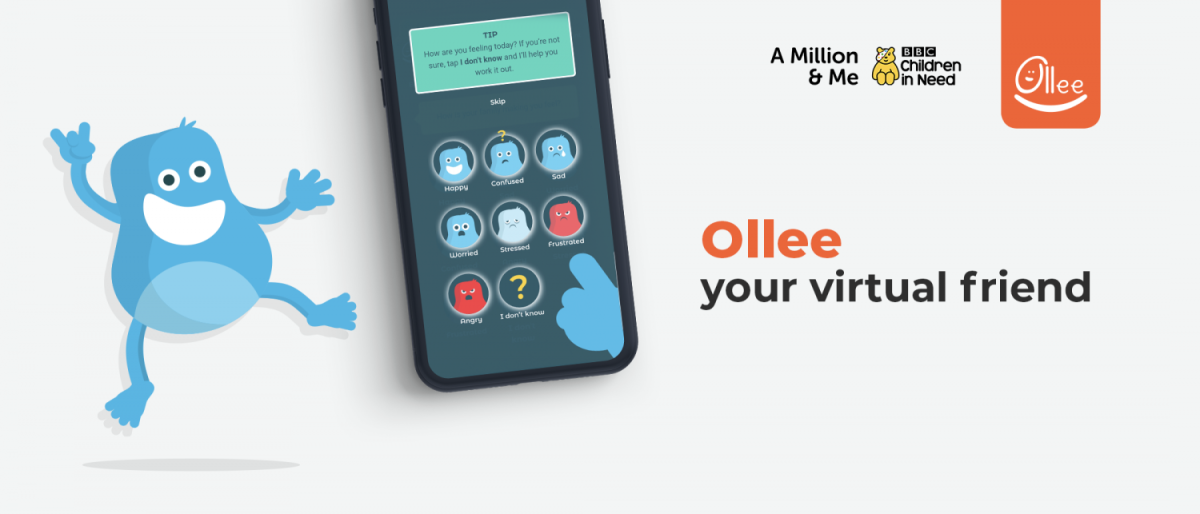Early warnings: how to spot when your child needs emotional help
As a parent you know your child better than anyone. That means you’re probably the first person to know when they’re struggling with an emotional problem, and the first person to help them with it.
Research has found that 75 per cent of mental health problems in adult life start by the age of 18 – so spotting the signs and supporting your child through a tricky time will be an important part of heading off future issues.
So how can you help? By knowing what to look for, then encouraging your child to talk about their feelings.
Ollee can help
Ollee, a new app developed by Parent Zone and funded by BBC Children In Need’s A Million & Me programme, is designed to help parents do just this.
A virtual friend that will help children to communicate their feelings, Ollee will offer them advice about a range of subjects – school, family, friends, their world – and will enable them to share this advice with trusted adults.
What’s more, it will also work the other way, with parents and carers able to consult the app for advice about problems they think their child might be experiencing – and then share a child-friendly version of this advice with them.
What to look for
Spotting when your child needs help isn’t always easy.
Stevie Goulding, Parents Helpline Team Leader at YoungMinds, agrees that it can be hard to know when to be worried about your child’s mental health. “Young people are adapting to lots of changes as they grow up,” she says. “So it’s normal for them to express raw emotions and change moods quickly.”
Professor Judy Hutchings, Director of the Centre for Evidence Based Early Intervention at Bangor University, says that any unusual behaviour may be a sign that your child needs more emotional support than usual.
“It could be that they’re withdrawn, aggressive or acting up or unusually emotional,” she says. “If they’re isolating in their room that can also be a sign – or they might be more demanding than usual.”
The key is often to look for long-term changes in behaviour around seemingly unconnected and everyday issues.
“If your child is consistently struggling, if you see a sustained change in their behaviour, sleeping or eating patterns, or if they seem to be upset over a long period of time, it’s important to take it seriously,” says Goulding.
Take the next step
Once you’ve identified that your child is struggling, the next step is to talk to them about it. This isn’t always easy either, particularly as children may not be aware that they need help.
“It can be really difficult to start the conversation about mental health,” says Goulding. “To make things less intense, try opening up a conversation when you’re doing an activity together, for instance going for a walk, baking or playing sports.”
Another great approach is to model your own behaviour. Talk to them about the things that you’re finding difficult and get them talking gently about their own feelings. Let them know that they don’t have to go through things alone.
Ollee’s advice can help spark these important conversations – and may prevent the problem from growing into something more serious.
Ollee is available now as an app and via a web browser. Try Ollee here.
